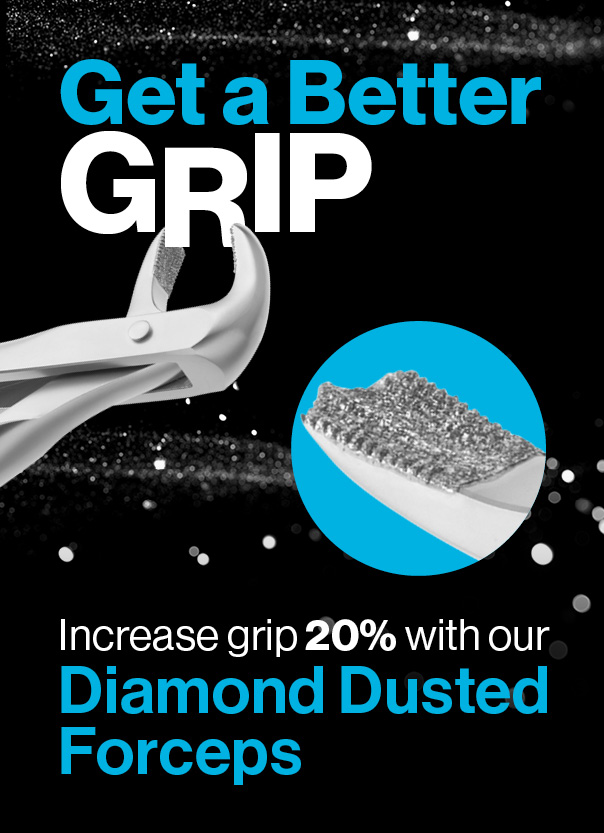Blog
This is Why Adopting an Instrument Management System Will Improve Your Practice

Four Case Studies Explore the Benefits of Making the Switch
Running a dental office takes a lot of work, and whether it’s a private practice or part of a dental service organization (DSO), finding ways to save time, maximize efficiency, and see more patients is a universal objective. Although all practices are different and face unique challenges, one common issue is optimal instrument management.
For many practices, switching to an Instrument Management System (IMS™) provides innumerable benefits; however, practices may be reluctant to switch. Practices may have to reconfigure their sterilization center, purchase new instruments, or retrain employees, but the return is worth the investment. Whether it’s reduced sharps injuries, enhanced organization, cost reductions, increased patient counts, or another benefit, practices that adopt IMS see measurable results.
Over the years, Hu-Friedy has profiled dental offices that implement IMS to explore the variety of ways that it positively impacts practices. Here are a few examples:
Reducing Sharps Injuries at Pacific Dental Services
Major DSOs like Pacific Dental Services (PDS) are always looking for measurable, data-driven ways to improve safety and ensure regulatory compliance across their network of supported dental offices. To better understand the impact of IMS, PDS identified two offices with an opportunity to reduce sharps injuries to trial the cassette-based system. After implementing IMS in those practices, PDS compared the results after a year with equivalent control offices.
The findings were unmistakable. Not only were sharps injuries reduced to zero for the two practices during the trial period, but both practices experienced improved efficiency, as instruments were reprocessed eight minutes faster on average, freeing up time to spend with patients. Following this successful experiment, PDS expanded it to more locations to verify the findings, which generated identical results. With such positive outcomes, Hu-Friedy worked with PDS to implement IMS in over 100 offices.
“Now that we’ve implemented these cassettes in approximately 100 offices, the feedback continues to be the same,” said one PDS compliance manager. “They really love the cassettes. They love the efficiencies of the cassettes.”
Keeping up with an Expanded Practice at Floss & Co.
As Floss & Co. in Chicago began to get busier, staff struggled at first to manage an increase in patients. There were simply not enough scalers to keep up, and all instruments were either in use or in reprocessing. At first, Dr. Izzy Naem looked to solve the problem by purchasing more instruments, but the real issue wasn’t the number of instruments. It was about improving process efficiencies and finding better ways to keep instruments better organized.
So, when Dr. Naem instead decided to switch to the IMS system, the practice was able to save 15 minutes per patient per chair, relieving some of the stress that the staff was experiencing.
“We don’t have to think about the instruments,” said Dr. Naem. “Where they’re at, where to put them, where to store them. It’s all in the cassette. It was safer, and it was easier.
With improved efficiency and organization, the practice was able to continue expanding, and saw a 40 percent increase in new patients. By switching to IMS, Dr. Naem was able to increase revenues and provide a better experience for his staff and growing patient base.
Improving Practice Efficiency at Orthodontic Specialists of Green Bay
When Dr. Edward Lin and his team at Orthodontic Specialists of Green Bay expanded from three doctors to four, the number of instruments used in their facility rose accordingly. Additionally, Dr. Lin was concerned about protecting his investment in premium instruments. After trying other solutions with unsatisfactory results, the team began using IMS, enabling them to see 60 to 120 patients a day efficiently.
Cassettes were fundamental to enabling Dr. Lin’s practice to successfully expand: “To work without the Hu-Friedy IMS System would be pure chaos,” Said Dr. Lin. “I couldn’t tolerate it because instruments are going to get lost. Instruments will get damaged. It would be physically impossible to be able to see the number of patients that we see in a clinical day without the IMS System.
Simplifying Complexity at Ora Oral Surgery & Implant Studio
For Dr. Steven Koos of ORA Oral Surgery & Implant Studio in Chicago, proper organization is key to practice success. Since ORA specializes in various oral surgeries, it’s important to have setups ready for each unique procedure, and organizing the correct instruments can be complicated and time-consuming.
Adopting IMS simplified instrument prep with the introduction of versatile and customizable cassettes that keep instruments organized and in one place for each procedure, from chairside to cleaning to storage. “My surgical team has really embraced the Hu-Friedy IMS Cassette System because it's enabled them to combine the cleaning and sterilization, and organization and storage, of a vast array of instruments into one integrated package and it works well,” said Dr. Koos.
Additionally, implementing cassettes has made it easier to hire and train new team members and open new locations without affecting the quality of care provided to patients. “From a business perspective, when you’re increasing efficiency, when you’re increasing patient flow and you’re decreasing waste, you’re actually increasing your bottom line,” Dr. Koos concluded.
Where Can Your Practice Improve?
There are numerous advantages to adopting IMS, and while each practice profiled here chose to make the switch for different reasons, the results are universal: better efficiency, improved safety, enhanced patient experience, and an increased bottom line.
Instrument management does not always get the attention it deserves from practice owners, but practices that commit to IMS experience the benefits in tangible, measurable ways.
If your practice does not already use an instrument management system, you can request more information from a Hu-Friedy representative on how a cassette-based system can directly benefit your practice.

